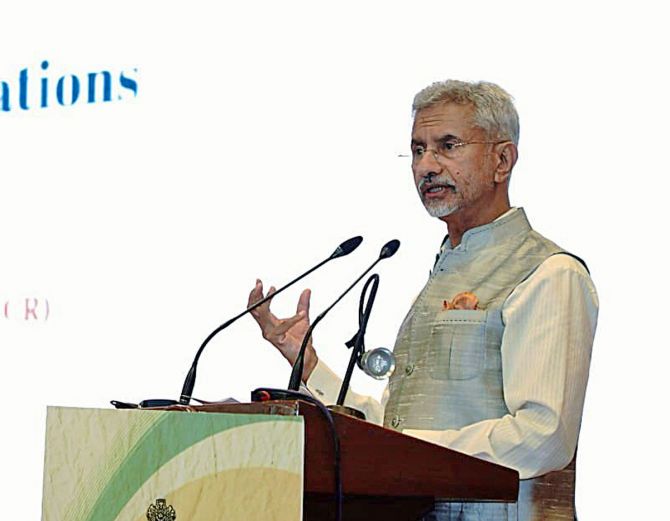The situation along the Line of Actual Control (LAC)in eastern Ladakh remained 'very fragile' and is 'quite dangerous' in military assessment because of close deployments of troops of both sides in some pockets though substantial progress has been made in the disengagement process in many areas, External Affairs Minister S Jaishankar said on Saturday.

Jaishankar also said that he and former Chinese foreign minister Wang Yi had reached an in-principle agreement in September 2020 on how to resolve the issue and that it is for China to deliver on what was agreed to.
In an interactive session at the India Today conclave, the external affairs minister also made it clear that the relationship between the two countries can not return to normal until 'these problems' are sorted out.
The Indian and Chinese troops are locked in a standoff for the past three years at certain friction points in eastern Ladakh even as the two sides completed disengagement of troops from several areas following extensive diplomatic and military talks.
"This is a very, I would say, challenging and abnormal phase in our ties with China. Why I say that is because from 1988 when Rajiv Gandhi went there till 2020 the understanding was that peace and tranquility on the border would be maintained," Jaishankar said.
The external affairs minister also referred to agreements between the two sides to not bring large forces to the border, adding a 'very specific' set of understandings and even protocols were put in place on the handling of various situations.
Jaishankar said the Chinese violated the agreements in 2020 and the consequences were seen in the Galwan Valley and other areas as well.
"We have deployed our troops, we have stood our ground and the situation to my mind still remains very fragile because there are places where our deployments are very close up and in military assessment, actually therefore, quite dangerous," he said.
"Now we have made substantial progress when it comes to disengagement in many areas. There are many areas where we have ongoing discussions. It is a painstaking job and we will do that," he said.
"We have made it very clear to the Chinese that we cannot have a breach of peace and tranquility, you can't violate agreements and then want the rest of the relationship to continue as though nothing happened. That's just not tenable," Jaishankar added.
The minister's comments came a day after Army Chief General Manoj Pande said that the situation along the LAC is stable but there is a need to keep a 'very close watch' on it.
In his remarks, the external affairs minister also referred to his meeting with his new Chinese counterpart Qin Gang on the sidelines of the G20 foreign ministers' meeting in Delhi on March 2.
"My most recent encounter in this regard was with the new foreign minister Qin Gang when the G20 foreign ministers meeting took place and we had a long discussion about it. In September 2020, Wang Yi and I had an in-principle agreement on how to resolve it. So the Chinese have to deliver on what was agreed to and they have struggled with that," he said.
Asked why the Chinese side is struggling to deliver, Jaishankar said the question should be put to the Chinese side.
"That's a question you need to ask them. I cannot answer it. Because, for me, it is very clear cut. Until these problems are sorted out, we will not return to a normal relationship. I want to make that very very clear," he said.
On February 22, India and China held in-person diplomatic talks in Beijing and discussed proposals for disengagement in the remaining friction points along the LAC in eastern Ladakh in an 'open and constructive manner'.
The meeting took place under the framework of the Working Mechanism for Consultation and Coordination on India-China Border Affairs (WMCC).
The eastern Ladakh border standoff erupted on May 5, 2020, following a violent clash in the Pangong lake area.
The ties between the two countries nosedived significantly following the fierce clash in the Galwan Valley in June 2020 that marked the most serious military conflict between the two sides in decades.
As a result of a series of military and diplomatic talks, the two sides completed the disengagement process in 2021 on the north and south banks of the Pangong lake and in the Gogra area.










